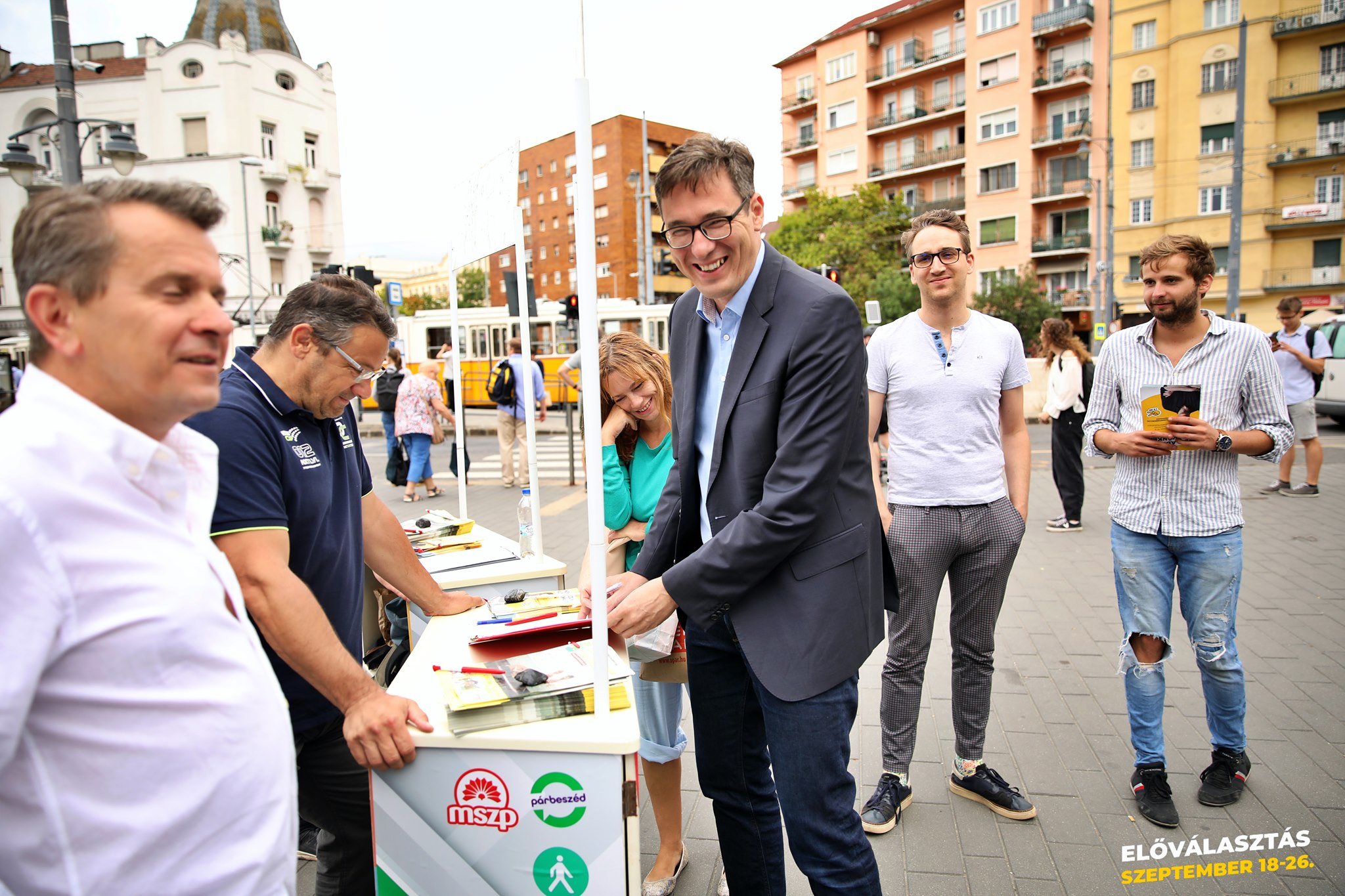
"A thoughtful, fair debate shall determine who is able to defeat Viktor Orbán," Budapest Mayor Gergely Karácsony said.Continue reading
Five prime ministerial candidates will run in the primaries after two of them didn’t manage to collect the relevant number of signatures. Gergely Karácsony (of Párbeszéd, but also backed by LMP, MSZP), Péter Jakab (Jobbik), Klára Dobrev (Democratic Coalition- DK), Péter Márki-Zay (Hungary for All Movement), and András Fekete-Győr (Momentum) will go up against one other. The winner will be Viktor Orbán’s challenger next April.
The signature drive officially concluded on Monday. According to the rules, PM candidates had to collect a minimum of 20,000 signatures nationwide.
While the exact, final number of recommendation slips collected doesn’t matter in terms of the race (as long as its above 20,000), perhaps it is worth mentioning the final data:
Important to note, that these are only the numbers of the submitted signatures. The National Primaries Committee has yet to confirm the final (and valid) numbers, but too much of a difference is not expected. According to hvg.hu’s information, all five contenders can take part in the first round.
As a matter of fact, it was Karácsony to cross the threshold, followed by Dobrev, then Jakab. The joint candidate of Párbeszéd-LMP-MSZP on the very first day of the collection claimed to have gathered the 20,000 recommendation slips. DK, meanwhile, states that they pocketed a lot more, some 80,000 signatures in total, although the leftist party has yet to prove this.
Áron Ecsenyi, leader of the libertarian ‘Down with 75% of Taxes’ party, who established his name by intensively protesting against coronavirus lockdowns, withdrew last week after he realized that he wouldn’t be able to collect enough signatures.
Yesterday, it was also revealed that Orbán’s former education minister, former Science Academy (MTA) president, New World People’s Party president dropped out of the race. József Pálinkás could only collect around 10,000 signatures and consequently announced his withdrawal.
On the other hand, Pálinkás’s elimination will probably raise conservative candidate Márki-Zay’s chances. Besides the two being close politically and also in terms of voting base, Pálinkás also made it clear much earlier that he would support the Hódmezővásárhely mayor’s campaign from now on.
The PM candidate will be chosen in a two-round ballot (online voting is also possible), with the best three qualifying in the second round. A first primary round will take place between September 18-26 (besides the three ‘finalists,’ a single opposition candidate will be selected in each of the 106 constituencies too).
At this point, Dobrev, Jakab, and Karácsony appear the most likely runners to qualify for the ‘final,’ but Márki-Zay’s popularity is on the rise too lately, and Pálinkás’s exit will definitely help, meaning more votes for him. Fekete-Győr’s ‘survival’ would be a huge surprise at this point.
Once the first round is completed, then there will be a runoff in the vote for the prime ministerial candidate to be held between October 4-10. Participating parties promise to finalize their PM candidate and individual MP candidates by October 23rd (the national holiday of the 1956 revolution, which has always been of special importance in domestic political matters).
featured image: (from left to right) Fekete-Győr, Jakab, Dobrev, Karácsony, and Márki-Zay; by Hungary Today (via MTI and Facebook)